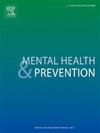Mental health prevention in Australia: Establishing a Preventative Mental Health Task Force to evaluate and recommend mental health prevention initiatives
IF 2.4
Q2 Medicine
引用次数: 0
Abstract
Mental health conditions are increasingly prevalent in Australia, necessitating targeted prevention initiatives to mitigate their impact. Effective mental health prevention requires large-scale public health responses, collaborative action, and long-term financial commitment. Yet, there are considerable challenges to implementing prevention initiatives in Australia, including the complex causes of mental health conditions, influences of social determinants, lack of scientific consensus on best prevention methods, short-term policy focus, and no clear mechanism to determine which prevention strategies should be recommended, funded, and delivered at scale. This paper describes the United States Preventative Services Task Force (USPSTF) as a potential model for guiding mental health prevention initiatives in Australia. We propose the creation of a government-supported Preventative Mental Health Task Force to rigorously evaluate mental health prevention initiatives and make tiered recommendations, supported by mental health organisations, lived experience advisors, First Nations people, and experts in the field. As the first step, we recommend the establishment of an expert advisory group to determine how the task force would operate. Establishing a mechanism to consider, implement, and fund the task force's recommendations is also essential. This type of evidence-based, coordinated approach to mental health prevention would add immense value to Australia's existing focus on early intervention, suicide prevention and recovery support, providing a new tool to tackle rising rates of mental ill-health.
澳大利亚的心理健康预防:建立预防性心理健康工作队,以评估和建议心理健康预防举措
心理健康状况在澳大利亚日益普遍,因此有必要采取有针对性的预防措施,以减轻其影响。有效的精神卫生预防需要大规模的公共卫生反应、协作行动和长期的财政承诺。然而,在澳大利亚实施预防举措面临相当大的挑战,包括心理健康状况的复杂原因、社会决定因素的影响、对最佳预防方法缺乏科学共识、短期政策重点以及没有明确的机制来确定应该推荐、资助和大规模实施哪些预防战略。本文描述了美国预防服务工作队(USPSTF)作为指导澳大利亚心理健康预防举措的潜在模式。我们建议成立一个由政府支持的预防性心理健康工作组,在心理健康组织、生活经验顾问、原住民和该领域专家的支持下,严格评估心理健康预防举措,并提出分层建议。作为第一步,我们建议设立一个专家咨询小组,以确定工作队将如何运作。建立一个机制来考虑、实施和资助工作组的建议也是必不可少的。这种以证据为基础、协调一致的心理健康预防方法将极大地增加澳大利亚目前对早期干预、预防自杀和康复支助的重视,为解决心理疾病发病率上升问题提供一种新工具。
本文章由计算机程序翻译,如有差异,请以英文原文为准。
求助全文
约1分钟内获得全文
求助全文
来源期刊

Mental Health and Prevention
Medicine-Psychiatry and Mental Health
CiteScore
2.10
自引率
0.00%
发文量
22
审稿时长
24 days
 求助内容:
求助内容: 应助结果提醒方式:
应助结果提醒方式:


